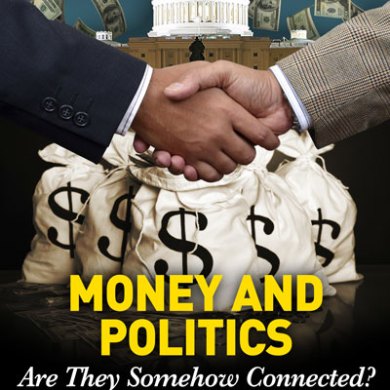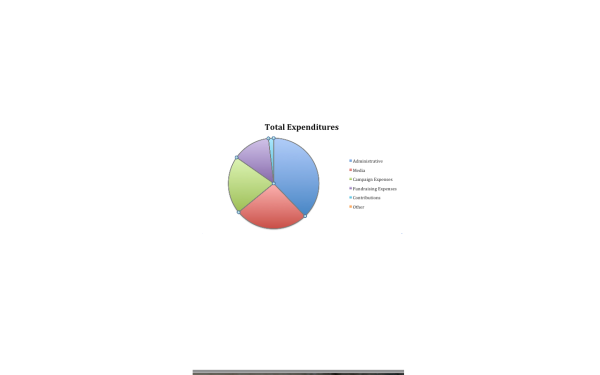In 2010, the Citizens United v. Federal Election Commission went all the way to the Supreme Court. The result of the case was a split 5-4 decision, determining that the First Amendment protects campaigners right to be financed by corporations and unions. Therefore, the government could no longer restrict the economic plans in campaigns. On behalf of the majority, Justice Kennedy stated, “if the First Amendment has any force, it prohibits Congress from fining or jailing citizens, or associations of citizens, for simply engaging in political speech.” In essence, this pronouncement changed the election process; outrageous amounts of money are now donated to support campaigns, which directly influences who is put into office.
Recently, the The Center for Responsive Politics has recorded statistics on campaign finances. The amount of cash put into these operations is staggering. Here are some eye opening numbers from recent elections:
- In total, $892,546,249 was spent on the 2012 elections for the US House of Representatives.
- $579,354,943 was the total amount of money spent in all 2012 elections for the US Senate.
- The most expensive Senate race in 2012 was the Massachusetts Senate. Scott Brown (Rep.) spent $29,726,635 and Elizabeth Warren (D) spent $35,694,573.
- The Democratic party spent $1,112,041,699 in the 2012 Presidential election
- The Republican party spent $1,246,902,432 in the 2012 Presidential election
One of the ways parties are able to rack up these insane amounts of cash is by bundling contributions. Bundle contributions are large contributions given by a group of people to the same candidate. Wealthy people group together so they do not individually hit the spending limit, but can still donate large amounts to presidential candidates. While all of this money is beneficial for a campaign, it distracts the candidates and altars their priorities.
 To explain, candidates focus more on trying to raise money for their campaign than sharing their political views with the voters. In order to win an election, the victorious candidate should be the best person to represent the people he or she is serving based on his or her policies and characteristics, not based on his or her fundraising ability. In More Money, More Problems, Klein interviewed Senator Evan Bayh, a Democrat who freely expresses his opinions on the advantages given in elections from financial aid. According to Senator Evan Bayh, candidates are “spending 90 percent of their time raising money.” This statistic shows that the focus of candidates is not on the people they are hoping to serve; it is on the people who can serve them. The most disappointing part about this statistic is that the time put into fundraising pays off. In the 2008 Presidential election, Obama raised almost 400 million more dollars than any other candidate. The outcome of this election resulted in an Obama victory, inferring that the fundraising was a major factor in his success. America was founded on the principle that the opinions of the citizens trump all, but since Obama spent so much more time and effort fundraising, the people did not top his priorities. In conclusion, in order to fulfill the ideals of the Declaration of Independence, campaigners should focus on gaining support from the people, not from rich people who offer tons of money in exchange for power.
To explain, candidates focus more on trying to raise money for their campaign than sharing their political views with the voters. In order to win an election, the victorious candidate should be the best person to represent the people he or she is serving based on his or her policies and characteristics, not based on his or her fundraising ability. In More Money, More Problems, Klein interviewed Senator Evan Bayh, a Democrat who freely expresses his opinions on the advantages given in elections from financial aid. According to Senator Evan Bayh, candidates are “spending 90 percent of their time raising money.” This statistic shows that the focus of candidates is not on the people they are hoping to serve; it is on the people who can serve them. The most disappointing part about this statistic is that the time put into fundraising pays off. In the 2008 Presidential election, Obama raised almost 400 million more dollars than any other candidate. The outcome of this election resulted in an Obama victory, inferring that the fundraising was a major factor in his success. America was founded on the principle that the opinions of the citizens trump all, but since Obama spent so much more time and effort fundraising, the people did not top his priorities. In conclusion, in order to fulfill the ideals of the Declaration of Independence, campaigners should focus on gaining support from the people, not from rich people who offer tons of money in exchange for power.
Continuing on, another reason big money in elections is harmful is because it is too difficult to reform or add restrictions to campaign financing. When Bayh was asked about reforming the policies on raising money in elections, he answered, “asking [government officials] to change the rules from which they’ve benefited is difficult” (Klein). Since the majority of the politicians who are in positions to change the laws regarding fundraising are elected as a result of their success in raising money, it would be foolish for them to support a reform.
To sum up, big money is controlling the government. Despite outbursts from citizens, the laws regarding political financing are stable. Since the people who support these laws are the most powerful people in the country, they are incredibly difficult to overturn. Campaigners will continue to distance the government from the country’s fundamentals by focusing on fundraising over the opinions of the citizens, which proves that cash-based campaigns are corrupting the government.


















